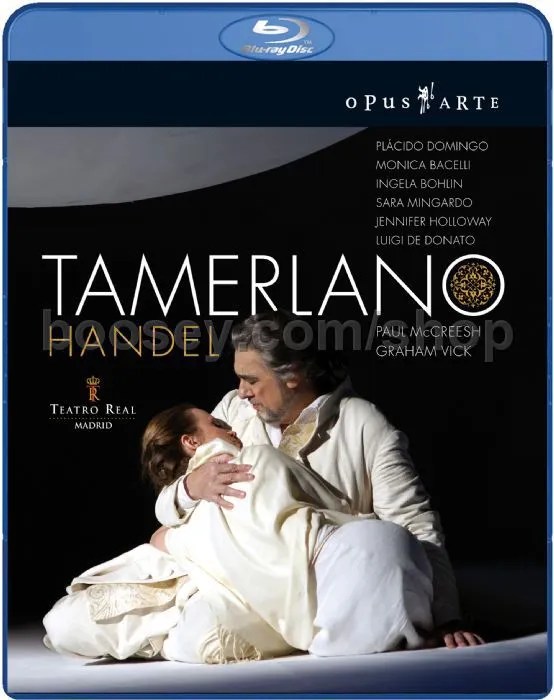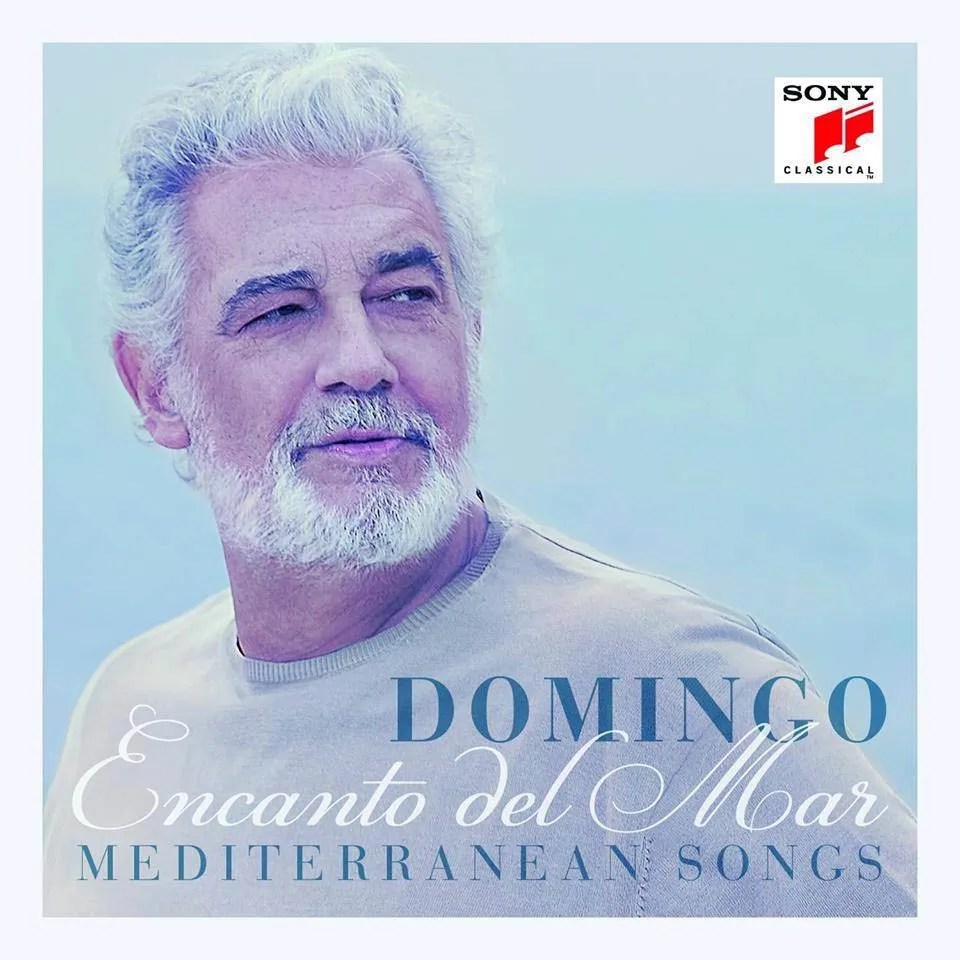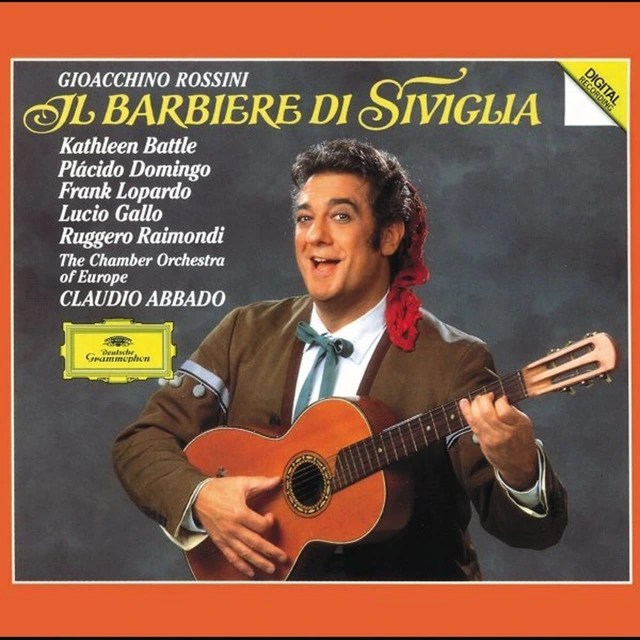Isaac Albéniz Merlin

The present recording offers a great opportunity for a musical game. The composer came from Spain, the orchestral sound is Wagnerian and the sung text is in (Old) English: who, oh who?
Isaac Albéniz (because this is about him) lived for quite some time in London where he befriended Lord Francis Burdett Money-Coutts, a wealthy banker with great ambitions and literary aspirations. His greatest dream was creation of an English counterpart to the Ring of the Nibelungen, and the story of King Arthur lent itself perfectly to that.
Albéniz received all possible support from the librettist/commissioner and in 1897 Merlin was created, which should have been the first part of the trilogy. The opera was never performed in its entirety and the score lay scattered between Madrid and London. That it was found and restored is thanks to conductor José De Eusebio, who, bolstered by a star-studded cast, was also allowed to record it for Decca.
The truly great cast is led by Plácido Domingo at his best as Arthur. As Merlin, we hear Carlos Álvarez: a dream of a baritone, warm, round and blessed with an almost old-fashioned morbidezza
https://open.spotify.com/album/40MeVLGOC3RuN7hwsQd441?si=aNCEPU5NQKuZan3eGiAJXQ
Beethoven Fidelio

If you want thunder and lightning in your Fidelio: choose for Daniel Barenboim’s
recording. Here, not only is the orchestra (Staatskapelle Berlin) of almost Wagnerian proportions, so are the singers: Waltraud Meier (Leonore), Plácido Domingo (Florestan), Falk Struckman (Don Pizarrro), René Pape (Rocco), Kwangchul Youn (Don Fernando).
On the other hand the roles of Jaquino (Werner Güra) and Marzelline (Soile Isokoski) are wonderfully lyrical (although more heavily cast than usual). The tempi are solid but never punishing, and Barenboim conducts with verve.
Bretón La Dolores

I know Tomas Bretón as one of the best zarzuela composers and his La Verbena de la Paloma regularly ends up in my CD player. From La Dolores, I knew – until not so long ago – only one aria and a single duet, as those belong to my Domingo collection.
Plácido Domingo sings ‘Jota’ from La Dolores:
This CD was a very exciting and very pleasant first encounter with the complete work and I sat up straight at the very first notes. The beautiful colours that the orchestra here displayed could only be the work of an important maestro.
The prelude strongly reminded me of Cavalleria Rusticana, which was only reinforced by the choral part that followed. But just when I thought I had heard it all before (besides the already mentioned ‘Cavalleria’, I also thought I recognised ‘Carmen’), it took a totally different turn.
Yes, it is unmistakably Spanish and often I was also reminded of El Gato Montés by Manuel Penella Moreno, especially in the brilliant scenes preceding the bullfight. But what most surprised me: why was La Dolores not recorded earlier? The first performance in 1895 was a huge success and the opera was even filmed.
Manuel Lanza (no relation) has a beautiful baritone voice that reminded me strongly of Carlos Álvarez.
Tito Beltrán has recorded a few solo CDs since 1993, when he won the Cardiff Competition, and it felt good to hear him in a complete opera recording.
And Plácido Domingo is, as (almost) always, superior.
Alberto Ginastera

The music of Alberto Ginastera, arguably the most important Argentine composer, is still terra incognita for most of us. Warner Classics has collected several of his vocal works on a new CD, with shining contributions from Plácido Domingo and Virginia Tola.
The scenes from ‘Don Rodrigo’ are no less than a gift, but: why only these two scenes? There is still no official recording of the opera, which is best described – in terms of musical structure – as the Argentine Wozzeck.
Plácido Domingo already sang the lead role at the opera’s US premiere in 1966 (!), at the New York City Opera. It is hard to compare his voice then and now, but his great aria “Señor del Perdón”, still rings as clear as a bell.
Domingo sings”Señor del Perdón”, recording from 22 February 1966:
In 1966, the role of Rodrigo’s beloved Florinda was sung by Jeannine Crader, an American soprano who was also the first to record Ginestera’s cantata Milena.
In the new recording, Domingo is joined by the brilliant Argentine soprano Virginia Tola. Her voice is childlike naïve and dramatic at the same time. Her last words after Rodrigo’s death will continue to haunt you.
Händel Tamerlano

A production directed by Graham Vick and conducted by Paul McCreesh was recorded at the Teatro Real in Madrid in 2008 (Opus Arte OA Bd7022 D). The cast was undoubtedly good, with Sara Mingardo leading the way as an outstanding Andronico.
Plácido Domingo (Bajazet) was making his debut in a baroque opera, but even he, my great idol, could not prevent me from falling asleep all the time. At his ‘Figlia mia non pianger’, I woke up and was momentarily moved, but that was it.
Much of the boredom is undoubtedly down to the director. Vick’s production is bare, bleak and (I assume?) aesthetically pleasing.
Below, Domingo in ‘Figlia mia non pianger’
Mare Nostrum: Plácido Domingo honours the Mediterranean Sea

Plácido Domingo recorded this CD in 2016. The ‘Mar’ in this case is the Mediterranean Sea. The singer who never takes a break, as Domingo is widely known, has collected songs from numerous Mediterranean countries. A surprising selection…
The Romans called the Mediterranean Sea ‘Mare Nostrum’, our sea. And that is true: the sea belongs to all of us. Domingo states on the album: “I bow before your grandeur. I am deeply grateful for the privilege of having been born in Spain, the land that is always caressed by your waters. I honour you in the only way I can: by singing your songs.”
The countries that surround the sea are all different and you can hear that in their songs. Domingo’s choice is surprising. Besides the not very exciting ‘Torna a Surriento’ and ‘Plaisir d’Amour’ (both in a new arrangement by Robert Sadin), he sings, among others, the Spanish classic ‘Del Cabello Más Sutil’ by Fernando Obradors, one of the most beautiful songs ever.
Very exciting and surprising are the Corsican polyphonic ‘Anghjulina’, sung with Barbara Fortuna and ‘Potho Reposare’, a beautiful love song from Sardinia.
I am less happy with ‘Aranjuez’, which in my opinion has already been completely milked dry, although the arrangement here is very refreshing. In its place I would have liked to hear something from Greece, because the traditional Cypriot song ‘To Yasemi’ certainly tastes like more.
There are more things of beauty on the CD. ‘Adio Kerida’ for example, sung in Ladino, one of the best known songs of the Spanish Jews.
Or the Israeli ‘Layla Layla’ by poet Natan Alterman, sung in perfect Ivrit. Or ‘Lamma Bada Yatathana’, a ‘muwashshah’ from Arab Andalusia, from the 12th century, with a typical North African rhythm (samai thaqil).
Trailer:
Mozart Idomeneo

In 1996, Deutsche Grammophon (4477372) recorded the opera conducted by Maestro James Levine with just about the Metropolitan Opera’s biggest stars of the time. No idea if it is idiomatic, but I find it HUGE!
Levine’s muscular conducting brings out hidden treasures and in no other performance can you hear how progressive the music is! The tempi are obviously brisk, but nowhere rushed, and most of the voices are overwhelming.
Plácido Domingo’s Idomeneo is exactly what we expect from him: with his beautiful, warm tenor, his regal recitation and his commitment, he makes Idomeneo a very emotional and mostly very humane king.
Rossini Barbiere di Sevilglia

In 1992, Deutsche Grammophon (4357632) presented a very special recording of the work: in fact, the role of Figaro was sung by none other than Plácido Domingo.
He does it very convincingly, proving that he has not only a beautiful voice but also a comical talent.
Arias by Verdi, but now as a baritone

The Domingo phenomenon …. No, I am not going to bombard you with facts and trivia, all of which you will have known for a long time because the press can’t get enough of them.
It so happens that, besides being a real fan, I am also a critical listener and I do my best not to let my ratio and my anima get in each other’s way. Whether I succeed is up to you, my reader, to judge.
Shaking my head, I read what some of my colleagues write about Domingo. He is blamed for singing baritone roles when he is not a real baritone. No, he is not (do I hear anything about Ramon Vinay?), but what bothers me most is that those are the same critics who have never even considered Domingo to be a real tenor. Everything, and certainly a human voice is mostly a matter of taste. But how you construct your criticism (or not) is more than that, it’s also about decency.
And now back to what this is all about: CD of baritone-Verdi arias by tenor/baritone Plácido Domingo.
Domingo has a Verdi curriculum to match, so he had already sung live in most of Verdi’s operas. But there is more, as he has also recorded all his major tenor arias.
It is a bit of an unreal experience to hear him now; singing his former rivals or the fathers in the same operas. His advantage: he knows the operas inside out. Your advantage as a listener: a totally different approach to those roles than you are used to. He understands the other side too!
That his Simon Boccanegra makes the most impression is not surprising: he has had that role in his repertoire for a few years now and has performed it all over the world (no, not in the Netherlands, somehow the Netherlands no longer count as part of “the world”).
Domingo sings ‘Plebe! Patrizi’ from Simon Boccanegra (Met 2010):
‘Ecco la spada’ is of such intensity that it renders me breathless. In this, he is assisted by (among others) Angel Joy Blue, a soprano who also partnered him at the Ziggo Dome in Amsterdam. We are going to hear more from that lady.
His father Germont (La Traviata) and Rigoletto also betray a his powerful experience of the stage: in ‘Cortigiani, vil razza dannata’ he sounds no less than heartbreaking.
He has also made Luna (Il Trovatore) his own by now. ‘Il balen’ already sounds impressive, but in ‘Qual suono’, with the more than excellent contribution of the Valencia choir, he lets himself go all the way and the result is stunning.
The Orquesta de la Comunitat Valenciana conducted by Pablo Heras-Casado sounds very competent and it gives the star all the space he needs to shine, which he amply does.
The making of:
Bonus
Plácido Domingo in “The Enchanted Island” (2011): “Who dares to call me? – Gone forever”
One more bonus: